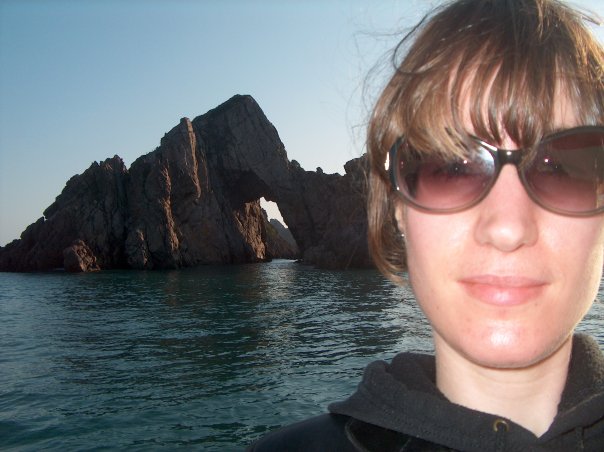I am a Japanese Film Community Outreach Volunteer for the Calgary International Film Festival. That means I get to put up posters in sushi restaurants and watch DVD screeners before the films show in theatres. The second part is the one I prefer.
So far I've watched Nonko, White on Rice and The Clone Returns Home. Nonko brought back memories of my visit to Japan, the clean tranquility of its shrines and countryside. Nobuko lives with her parents at the Shinto shrine they manage in a small city. Despite the fact that she lives in paradise, she's reticent, rude, drinks to much and doesn't have any real friends. She's an ex-TV/B-movie/porn actress (the movie doesn't really specify), single and pushing forty. She is not fulfilling her societal role, as is made clear by her strained relationship with her sister, who does have the husband and the child. Both her past and potential futures come to visit Nobuko in the form of two men, one her ex-husband and "business manager", and the other a young man named Masaru who wants to set up a stall at the shrine for the upcoming June Purification Festival. Masaru is an itinerant, a social misfit who wants "to see the world", even though the film barely leaves the confines of the city. Despite his persistence, the local yakuza boss won't let Masaru set up his stall. There's a scene near the end, where Masaru loses it during the festival after being humiliated by the other stall operators. He ends up knocking over his boxes of baby chickens, and he and Nobuko stand surrounded by a sea of fluffy yellow chicks. Both with nothing left to lose, but ankle-deep in new life.
White on Rice's protagonist is also divorced, forty-ish and very socially awkward. Yet he is irrepressible in his search for a new love. Hijime ("Jimmy") lives with his sister and her family in the USA. Jimmy was a fish out of water even when he lived in Japan. When a co-worker suggests a date with a Japanese woman, he replies, "No Japanese! My own people won't have me." Jimmy falls for his brother-in-law's niece, and has eyes only for her, even when at a Halloween party he gets hit on by an attractive young Asian-American woman (in a banana costume, no less). The movie spends time exploring all the characters in Jimmy's family, including his young nephew Bob, a serious boy who lends money and gives dating advice to his uncle. Bob operates a lawn-mowing business and plays classical piano at a neighbour's house, unbeknownst to his parents. Jimmy's hapless ineptitude forces his sister and brother-in-law to deal with their own issues and flaws. The film finds its funniest moments in the ironies that arise when cultures mix. Jimmy takes his Korean date to a Japanese restaurant, where they are waited on by a white man in a hachimaki headband. This same character later on comes to the aid of the family during a crisis, as might the hero of a martial arts movie. It reminds me of my time in Korea, eating birthday cake with chopsticks and kimchi with a fork.
Subscribe to:
Post Comments (Atom)

No comments:
Post a Comment